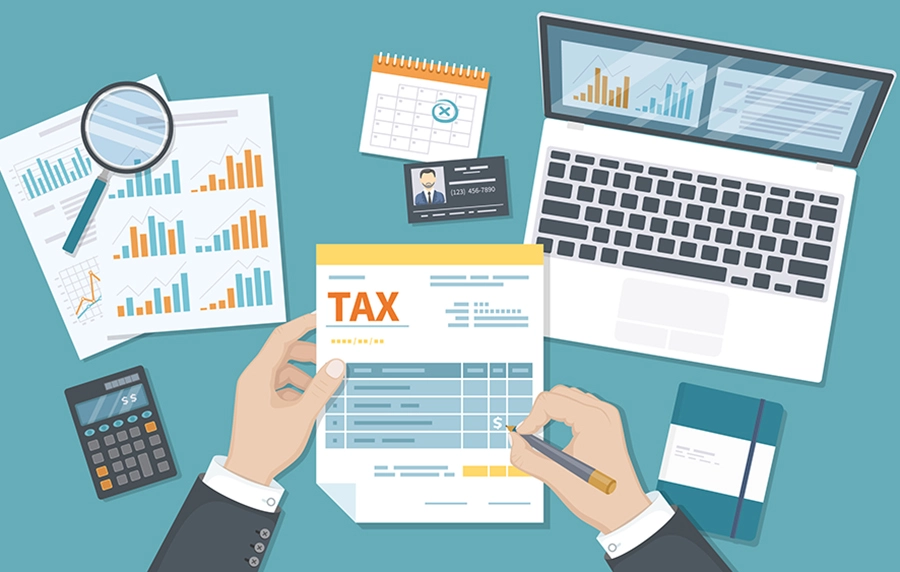With the uncertainty in the price of crude oil on the international market, Nigeria faces indeterminate revenue generation flow. It, therefore, makes it difficult to effect fiscal policies when the main source of government revenues is uncertain.
Various academic reports, as well as acknowledgments from federal institutions in the country, accentuate the fact that the three tiers of government are grossly inefficient in the generation of tax revenues.
It is a no-brainer that inefficiency has caused a significant drag on Nigeria’s economic growth and development. That has also engendered a vicious cycle in the sense that growing indebtedness is further sapping the country’s financial resources in the form of debt servicing.
The tax-to-GDP ratio in Nigeria is one of the lowest, not just by global standards, but also by African standards. Even with the government’s efforts in recent times at increasing the tax-to-GDP ratio, it is still inadequate, in spite of marginal improvement.
The tax-to-GDP ratio in Nigeria increased by 9.5 percentage points, from 5.7 percent in 2017 to 6.3 per cent in 2018. In comparison, the average for 30 African countries increased by just under 0.1 percentage points over the same period but was 16.5 per cent in 2018. Since 2010, the average for the 30 African countries has increased by 8.69 percentage points, from 15.1 per cent in 2010 to 16.5 percent in 2018. Over the same period, the tax-to-GDP ratio in Nigeria has decreased by 13.69 percentage points, from 7.3 percent to 6.3 per cent. The highest tax-to-GDP ratio in Nigeria was 9.6 per cent in 2011, with the lowest being 5.3 per cent in 2016.
Nigeria’s tax-to-GDP ratio in 2018 (6.3 per cent) was lower than the average of the 30 African countries in Revenue Statistics in Africa 2020 (16.5 per cent) by 61.8 percentage points and also lower than Latin America and the Caribbean (23.1 per cent) by 72.72 per cent.
In 2018, Nigeria’s non-tax revenues amounted to 3.1 per cent of the GDP. This was lower than the average non-tax revenues for the 30 African countries (6.5 per cent of GDP). Rents and royalties represented the largest share of non-tax revenues in 2018, amounting to 2.0 per cent of GDP and 66.6 per cent of non-tax revenues.
Clearly, Nigeria is among the least when it comes to revenue generation from taxes. Among other reasons that can be ascribed to that deficiency is the lack of capacity, coupled with deeply ingrained corruption in the form of tax evasion by individuals and corporations that should be among the most taxed.
A salient reason for Nigeria’s poor performance in tax revenues is not far-fetched. Taking the year 2018 as a sample year, Nigeria generated 10 per cent of her tax revenues from personal income tax, 50 per cent from corporation tax, 8 per cent from social security contributions, 14 per cent from value-added taxes, 12 per cent from taxes on goods and services other than value added taxes (VAT), and 6 per cent from other taxes.
On the other hand, on average, other African countries generated 17 per cent from personal income tax, 19 per cent from corporate income tax, 7 per cent from social security contributions, 30 per cent from value-added taxes, 22 per cent from taxes on goods and services other than VAT, and 8 per cent from other taxes.
As can clearly be seen above, other African countries generate most of their revenue from VAT, whereas Nigeria does from corporate income tax. Although there are many corporate organisations in Nigeria that can contribute significantly to meet much of the country’s revenue targets, that is the area where, not just Nigeria, but many other countries, especially developing ones, lack the capacity to trace tax defaults and evasions.
Given the apparent lack of capacity to generate tax revenue, a veritable practical approach to more revenue generation is through the VAT. It is enforceable, and it covers everybody in the country that buys and sells goods and services. Moreover, it is equitable because the rich pay more for more expensive goods and services, and the poor pay less for less expensive goods and services.
Hence, it bespeaks wisdom to increase the percentage of taxation that covers the entire country. Nigeria’s is one of the least in the world, hence poor revenue generation.
VAT is tolerated by final consumers, so it is a consumption tax. Companies do not take the burden of VAT. Through a system of deductions, it is claimed fractionally, where taxable persons can abstract the VAT liability amount which they paid to other taxable persons on business activities purchase.
As VAT is a consumption tax the revenue generated will be constant. Compared to other indirect taxes VAT is easy to manage. Due to the catch-up effect of VAT, it minimises avoidance.
A huge amount of revenue is generated at a low tax rate through VAT. As the VAT is collected in small installments so the consumers have a minimal burden. VAT is a neutral tax so it can be imposed on all types of businesses.
Hence, a good approach to increasing revenue generation in Nigeria would be to increase the percentage of VAT from its current 7.5 per cent.
Otherwise, the tax authorities would continue to increase the burden of taxation on a few, thus discouraging corporate and small-scale investments.





